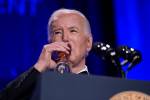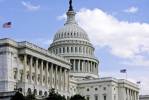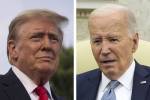Clintonomics: ‘Neither trickle-down nor tax-and-spend’
The Bill Clinton nostalgia, the wistful longing for a good president, is strong.
Democrats say he didn't cave in 1995 the way Barack Obama supposedly caved in 2011. Republicans say he at least was engaged during his budget negotiations and maybe the smartest guy in the room.
Part of that is cynical Republican convenience by which lauding a Democrat of yesteryear, one Republicans so despised at the time that they wanted to criminalize his adultery, erodes the stature of the Democrat with whom the GOP must deal now.
When the best you can offer for your own part is smarmy Mitt Romney or nonsensical Michele Bachmann, and when you are reduced to yearning for secessionist Rick Perry of Texas, then your best gambit is to make the other guy a pitiable shadow of that glorious Bill Clinton of better days gone by.
Actually, though, I wish to offer a personal admission: As one who came down with the first known case of Clinton Fatigue, this occurring in 1987 in his sixth year as governor of Arkansas but five years before he emerged as leader of the free world, I, too, have come in recent days to wish for a return of ... not him, exactly, but of the essence of some of his political thinking.
"A third way," is what Clinton said then, adding, "neither trickle-down nor tax-and-spend."
That should become the mantra of the bipartisan deficit-reduction commission soon to be appointed under terms of that tenuous debt-ceiling compromise.
Liberals say the country can emerge from its economic woes only by preserving, or in fact increasing, government spending, covered in part by higher taxes on rich people, so that human needs will be met and a constricting economy will not get constricted even further, and dangerously.
Conservatives say the drain on our economy is public debt. They say we must attack that debt with reduced spending, but not with increased taxes because you simply cannot hope to repair an economy by extracting more dollars from it for the government.
Both arguments are theoretical and political, but not empirical. Neither is supported in whole by any experience.
Unrestrained deficit-spending at a time of economic idling causes our deficit and debt to grow as a percentage of gross domestic product and, even if manageable at the moment, threatens our long-term sustainability.
But simple and non-strategic across-the-board spending cuts could well push an economy from idle to reverse. And the country has thrived economically, in the 1950s and 1960s, with much, much higher marginal tax rates on the elite high incomes.
So what Clinton accomplished in 1993, without a single Republican vote, was the enactment of an economic plan that raised the top marginal tax rate on the very highest income category and, on the other side, reduced the rate of spending growth in several strategically selected areas.
Then he went along with reforming welfare in a way that reduced spending and human dependence, incurring the fleeting wrath of his left flank.
And what happened? Only the 1990s boom. Only a budget surplus. Only a paying down of the debt.
The lesson of Clintonomics ought to be that the strident and polarizing rhetoric of the opposing economic and political philosophies is not a matter of absolutes and should not be considered irreconcilable.
You cut spending as one side wants, if not as much as that side wants. You raise taxes on the very wealthiest as the other side wants. You make cuts in the rate of growth of Medicare at the risk of incurring the fleeting wrath of the left flank that so liked the higher top tax rate.
Then you stir what you can only hope to be a right-enough mix that a little economic flurry will start to boil up.
John Brummett is an award-winning columnist for the Arkansas News Bureau in Little Rock and author of "High Wire," a book about Bill Clinton's first year as president. His e-mail address is jbrummett@ arkansasnews.com.























